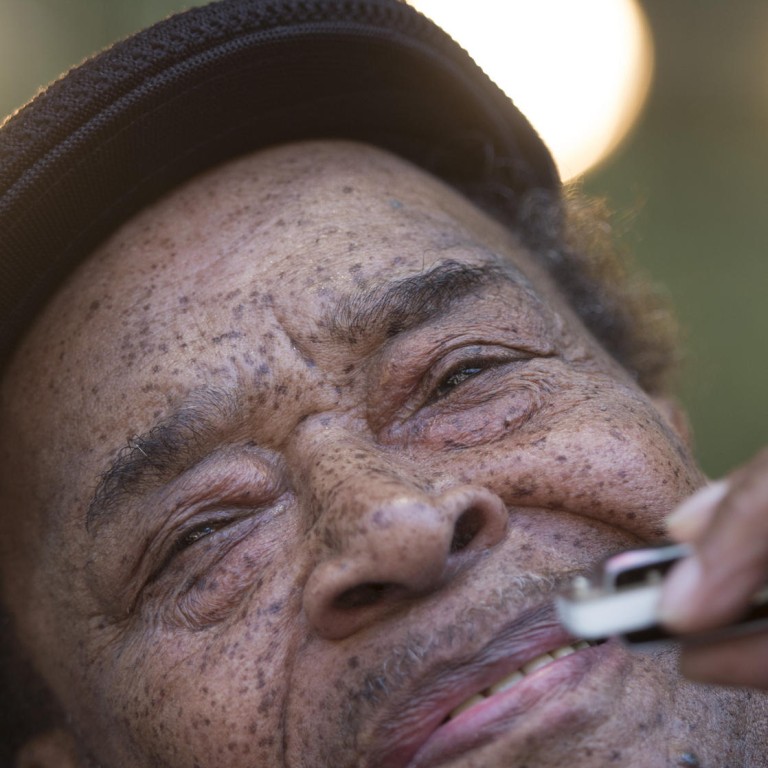
Blue Notes: 'Cotton Mouth Man' by James Cotton
In the words of Brownie McGhee and Muddy Waters, The Blues Had a Baby and They Named it Rock and Roll.
In the words of Brownie McGhee and Muddy Waters, .
The errant child has had a few moments of filial gratitude, the latest expression being a guest-star-studded album from 77-year-old-blues harmonica ace and former Waters sideman James Cotton.
On , Cotton is accompanied by members past and present of the Allman Brothers Band, guitarist Joe Bonamassa, and featured vocalists Keb Mo', Delbert McClinton and Ruthie Foster.

A good example is Fleetwood Mac's 1969 album , for which the band, then led by Peter Green - considered the finest British blues guitarist of his generation by iconic guitarist B.B. King - recorded at the famed Chess studio in Chicago with an all-star cast of blues giants, including Willie Dixon, Otis Spann and Buddy Guy.
However, in the 1970s the nature of these collaborations changed. The blues rockers/blues fans had become rock stars, and their names moved serious quantities of product. Sessions were set up on which the rock aristocrats backed their blues heroes, with the intention of selling the progenitors of the music to the rock audience.
The pioneering project was 1970's featuring Eric Clapton, Steve Winwood, Charlie Watts and Bill Wyman, followed in 1972 by , featuring Winwood again, along with Rory Gallagher, Georgie Fame and Mitch Mitchell.
These were modestly successful commercially - their artistic merits are debatable - and similar exercises followed, the nadir, perhaps, being which gave the man who wrote and a string of other classic rock'n'roll songs, his only No1 single on both sides of the Atlantic: the ghastly .
Many of these projects sank without trace, but the formula finally paid off big time in 1989 with John Lee Hooker's . The cast of characters for that album included successful black artists as well as white. Robert Cray was featured with Hooker, alongside Bonnie Raitt, George Thorogood, Canned Heat, Los Lobos and Carlos Santana. The album reached number 62 in the Billboard 200 music charts.
On , James Cotton sounds as though there is plenty of life in him yet. Treatment for throat cancer in the 1990s had more or less finished him as a vocalist - although he sings on , the acoustic final track of this album - but didn't affect his distinctive harmonica growl.
Cotton's most notable tenure as a sideman was 12 years with Waters starting in 1954, but he wearied of filling the shoes of arguably the greatest of all blues harmonica players, his predecessor Little Walter, and struck out on his own.
There were occasional reunions. Well though he sang in his heyday, Cotton's best singing voice has always been his harp, and he guests as an instrumentalist on 1977's , one of the best of the late Waters' albums.
should be of interest to fans of the Allman Brothers, Bonamassa and Keb' Mo, but they are all there to provide a setting for one of the finest living exponents of Chicago blues harp.
Cotton recently went for a medical check-up and his doctor told him: "I believe playing the blues is good for you" - which gave him the title for one of the album's songs. Long may it so prove.
Three classic blues albums featuring the blues harmonica playing of James Cotton.
-
(1960, Chess): one of the definitive recordings of the blues in concert, recorded at the 1960 Newport Jazz Festival, the day after the famous riot. The Muddy Waters band features Otis Spann on piano, and Cotton on harmonica. His performance on the anthemic is a career-defining moment.
-
(2007, Sony): a collection of live recordings from a late 1970s tour in support of Muddy Waters' comeback album, credited equally to producer/guitarist Johnny Winter, Waters and Cotton. All three are on extraordinary form.
-
(1996, Verve): Cotton picked up a Grammy for best traditional blues album with this intimate set of originals and blues standards, also featuring the great jazz bassist Charlie Haden and guitarist Joe Louis Walker.

